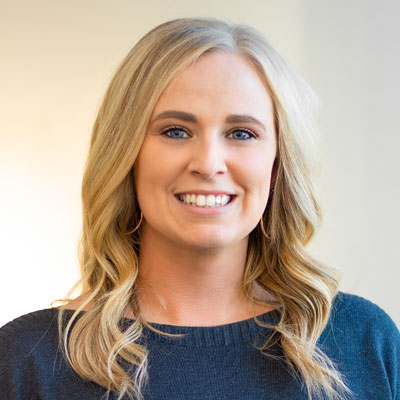Independent Contractor | Company Driver | Flatbed Driver | Heavy Haul Driver | Owner-operator | Dry Van Driver | Safety
Cargo Theft in 2025: 9 Ways Truck Drivers Can Stay Secure
Samantha has been working at ATS since 2013, where she began in operations support in the specialized division. She quickly transitioned into a specialized driver manager role and began managing her own fleet of drivers. Samantha currently acts as an operations manager in the van division.
Key Takeaways for Drivers:
- Cargo theft is rising sharply, especially digital “strategic theft” schemes.
- Top risk areas: major freight hubs, ports, truck stops, and high-density cities.
- Red flags: last-minute changes, mismatched credentials, incomplete paperwork.
- Prevention tips: verify load details, secure parking, stay hooked to trailer, lock equipment, trip plan.
- If theft occurs: Contact dispatcher or law enforcement immediately, then check insurance coverage.
Cargo, truck, and trailer theft is on the rise. At the start of 2025, CargoNet reported that cargo theft across the U.S. and Canada rose 27 percent year-over-year — an increase experts called "unprecedented."
As technology gets more advanced, so do cargo thieves. These bad actors are using the freight industry's reliance on digital tools to trick shippers, brokers, and carriers. Truck drivers must therefore be more alert than ever, and aware of the red flags that could indicate a cargo theft in progress.
Having spent 70 years in the transportation industry, Anderson Trucking Service (ATS) has watched cargo theft techniques evolve from simple road theft to the digitally enabled crime landscape of today.
We've had plenty of experience helping our own team stay informed and proactive, and we're happy to help you do the same — so you can avoid truck and cargo theft and the costly aftermath.
Let's dive into what cargo theft looks like 2025, the areas where cargo theft is most common, and our best tips for preventing cargo theft on your runs.
What Is Cargo Theft?
Cargo theft is the process of stealing goods from a commercial shipment. It can happen directly from a vehicle or from warehouses and distribution facilities.
Even if your truck isn't loaded, it may still be a target for theft. Empty trailers and trucks are often stolen from truck stops and parking lots.
While direct theft — the act of stealing a loaded trailer or cargo from unsecured areas — has been common since the invention of the cart, we're seeing a more sophisticated type of theft take hold across the industry in 2025.
We've mentioned that modern cargo thieves are using technology to their advantage. Here's how that happens: a thief will digitally manipulate data, paperwork, and other identifying information to impersonate a legitimate carrier, broker, or shipper.
Once the thief has successfully infiltrated their target supply chain, they will use their new insider knowledge of that supply chain to intercept freight and steal cargo.
This is called strategic theft, and it has risen nearly 1,500 percent since 2021, according to CargoNet.
In most strategic theft schemes, the drivers and warehouse employees handling the affected freight have no idea they're helping a criminal achieve their goal.
That's because strategic theft is all about deception and misdirection. Here are just a few examples of common strategic freight theft schemes:
- Altered bills-of-lading (BOLs): Thieves steal part of a shipment, alter the bill of lading to hide the shortage, and deliver the load with the fake BOL. The fraud often isn’t discovered until inventory or payment review weeks later.
- Bad faith brokering: Criminals disguise a stolen load as a legitimate job, tricking a real carrier into hauling it to the thieves’ chosen destination.
- Fictitious pick-ups: Thieves use fake credentials (like MC numbers) to steal shipments by posing as legitimate carriers, whose real identity is often only discovered when they arrive at pickup.
In each of these cases, the drivers involved are acting on good faith that the shipments they're hauling are part of a valid transaction. That's what makes strategic theft schemes so scary: you may not know you're part of one until it's too late.
Related: Preventing truck driver identity theft and fuel card fraud
Cargo Theft Fast Facts
Here's a quick and dirty overview of cargo theft facts for truck drivers to be aware of:
- CargoNet says the worst states for cargo theft are California, Florida, Georgia, Illinois, and Texas.
- Major cities and freight hubs like Atlanta, Chicago, Dallas, Los Angeles, and New York City are among the hottest targets for thieves, especially for trailer burglaries and full trailer theft.
- Beyond metropolitan areas with a high freight density, cargo theft is most prevalent in and around multimodal freight hubs, ports, retail parking lots, truck stops, and warehouses and distribution centers.
- Refrigerated trailers and dry van trailers are the most-targeted trailer types.
- Copper products, electronics (especially computers and parts), food and beverage (especially hard liquor, energy drinks, and produce), household goods, personal care products, and vehicles (including parts and accessories) are the most-targeted freight types.
7 Strategic Freight Theft Red Flags to Watch For
The new generation of cargo thieves use fraud, not force, to get away with their crimes. Stay alert and protect your freight by watching for these red flags:
- 🚩 Last-Minute Changes: Pickup or delivery locations suddenly switch without official confirmation.
- 🚩 Mismatched Credentials: The on-site personnel or consignee doesn't match the name on the BOL or ID.
- 🚩 Suspicious Urgency: Someone pushes you to skip normal verification steps or rush the load.
- 🚩 "Too Good to Be True" Rates: Loads that pay well above market average could be bait.
- 🚩 Unprofessional Communication: Emails from free domains (like Gmail), poor grammar, no direct phone number, etc.
- 🚩 Incomplete Paperwork: Blurry documents, spelling errors, or missing company logos.
- 🚩 Ghost Brokers: Refusal to provide carrier packet, MC/DOT number, or references.
How Drivers Can Help Prevent Cargo & Truck/Trailer Theft
It's important to note that in many cargo theft scenarios, the drivers are victims as much as the affected shippers and carriers. Not only can it be a blow to your personal sense of safety, it can cause frustrating (and costly) delays.
While the responsibility of rooting out fraud and theft never falls solely on the driver's shoulders, there are some ways you can make things more difficult for thieves to thrive. These nine actionable tips will help you feel secure that you've done everything in your power to avoid theft.
1. Verify Pickup Information
- Always confirm load details (pickup number, location, consignee, and contact person) with dispatch before moving a trailer.
- If the instructions change suddenly (like a new pickup address provided at the last minute), double-check with your dispatcher or the shipper directly.
2. Check IDs & Documentation
- Match the name on the BOL with the person handing it off.
- Ensure all paperwork looks legitimate: no blurry copies, spelling errors, or mismatched info or logos.
3. Stay Alert on Load Boards & Marketplaces
- Accepting loads through digital freight platforms? Make sure the broker or shipper is vetted and verified by your company.
- Be cautious of loads offering unusually high pay compared to the market average. If it sounds too good to be true, chances are it is.
4. Prioritize Secure Communication
- Only communicate through official, approved company channels.
- Avoid giving sensitive load or route details over unsecured texts, emails, or third-party apps.
- If anyone you don't know reaches out to you directly claiming to be a stakeholder in your load, do not engage. Report it to your dispatcher immediately and wait for more information.
5. Park in Secured, Well-Lit Areas
- Choose lots with gates, working cameras (pointed at trucks), and staff who can confirm surveillance equipment is functional.
- Paid parking can add another layer of safety.
- Stick to lit areas near cameras. Avoid dark corners, abandoned lots, or other high-risk spots.

6. Stay Hooked to Your Trailer
- Unhooked trailers are easy targets for thieves. Keep your tractor and trailer connected whenever possible, even during short stops.
- Hooking also makes it harder for criminals to steal the tractor itself, as it is a more complex undertaking than just driving the tractor away.
7. Lock Up Your Tractor & Trailer
- Use barrier seals and rear door locks on trailers.
- Secure tractors with air cuff locks and steering column locks.
- Don't assume you'll notice a theft in progress from inside the cab. Thieves can work quickly and quietly, especially if you’re asleep or running an APU.
- Even open-deck freight should be secured — if not the cargo, then the trailer itself.
8. Trip Plan for Safety & Security
- Effective planning helps you avoid scrambling for unsafe parking.
- Build in extra time to choose secure lots or safer areas along your route.
- Avoid overnight stops in high-theft zones whenever possible and stay extra alert when you can't.
9. Report Suspicious Behavior
- If something doesn't add up, notify your dispatcher immediately.
- If you notice suspicious behavior at a truck stop, report it to the truck stop manager or call a local non-emergency line.
- Early reporting by drivers can prevent an attempted theft from succeeding. You play a vital role in thwarting these crimes before they unfold!
What to Do If Cargo Theft Happens to You
Unless you’re in immediate danger, your first call after noticing cargo theft or truck/trailer theft should be to your dispatcher or driver manager.
Together, you’ll work to determine what happened and where the freight, truck, and/or trailer may be. For example, if your tractor and trailer are missing, call local authorities and impound lots to see if your truck was impounded, not stolen.
But if the worst really has come to pass and your freight was stolen, you’ll have to call law enforcement to report the cargo theft. The next step will be to check your insurance and determine what is covered.
If you’re an owner-operator, calling a dispatcher or driver manager may not be an option for you — adapt this advice to your situation; your first call may be to law enforcement instead.
Protect Your Truck, Your Freight, and You
Cargo theft is evolving, and today’s thieves are relying on digital fraud and deception rather than brute force. As theft rates climb across North America, drivers play a critical role in prevention.
Staying proactive isn’t just about safeguarding cargo; it’s about keeping yourself, your equipment, and your customers safe from costly disruptions.
By learning the red flags of strategic theft and following best practices — like verifying pickup details, securing equipment, parking in safe areas, and planning trips strategically — you can help protect both your freight and your livelihood.
If you found this guide helpful, take the next step in protecting yourself on the road. We've got you covered with our follow-up resource: 16 Personal Safety Tips for Truck Drivers.

